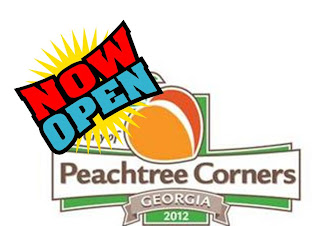Tax Allocation Districts are sometimes called TIFs (Tax Increment Financing) because they are based upon the incremental increase in tax revenues. Basically, the city designates an area as blighted, or economically underdeveloped. It then issues bonds to raise money specifically for making improvements within the TAD. These improvements are usually in the form of infrastructure- roads, sidewalks, sewers, stormwater drainage and even public transportation. The public improvements the city makes coupled with the private redevelopment it (hopefully) spurs cause property values in the TAD to rise. As the property values rise, so does the amount of money those properties pay in property tax. That increase in the amount of taxes paid is put in a special account and used to pay off the bonds.
Although TADs have been in use for years, the jury is still out as to how well they work. Many point to Atlantic Station as a great example of a TAD at work. The site of the former Atlantic Steel plant was designated as a brownfield; the old steel plant was an eyesore and the land around it was polluted from the fallout of years steel production. In 1999 the assessed value of the property was $7 million. The City of Atlanta floated $67.5 million worth of TAD bonds to help pay for nearly $190 million in cleanup and infrastructure improvements to the site. By 2008 the assessed value of the property was $452 million and it was generating an incremental increase in tax revenues of $8.3 million per year to the City of Atlanta- more than enough to pay off the bonds in thirty years. But since then, the economy at large has been in recession. Stores and restaurants at Atlantic Station have closed, condos have gone unsold and apartments have become vacant. The area has developed (no pun intended) a reputation for cruising and crime. A real estate professional and resident of Atlantic Station likened it's downward spiral to Underground Atlanta. The accompanying drop in property values has reduced the amount of 'incremental increase' in taxes to the city. Time will ultimately tell if it is successful.
A TAD to redevelop residential areas near 'the square' in Marietta is facing similar difficulties. As a result of the recession, several of the developers involved have gone bankrupt leaving some of the area undeveloped. Those who bought 'early' have seen their home values decline and the city has seen tax revenues decrease, although not enough yet to put the TAD bonds at risk. As with Atlantic Station, time will tell if the TAD is successful.
Sometimes there are
other municipal costs associated with a TADs that are not covered by the
increase in tax revenues. The increased development may create an increased
need for services like police and fire. Since the funds generated by the TAD
are earmarked to pay the bonds, the increase in the cost of services is borne
by the city.
What happens if the
TAD doesnt live up to expectations? The AJC reported a couple of years ago that
the taxpayers of Kansas City were stuck for $6 million in 1999 for a TAD gone
bad. In Georgia, the laws regarding the use of TADs are much stricter. Cities
are not allowed to pledge general revenues to back the bonds. The investors who
buy the bonds bear the loss if the bonds default. John Matthews, a professor of
policy and planning at Georgia Tech has studied and written extensively about
TADs. In the event of a default he believes that "bond ratings could
suffer and interest rates rise" on future bond issuances, and he says that
cities are seen as having a "moral" duty to guarantee the bonds.
Unanswered as yet is
what Peachtree Corners would do with a TAD given that the municipal
contribution to the TAD is infrastructure improvement. As a limited services
city, Peachtree Corners cant build roads, sidewalks or sewers and cant run
buses or trolleys. Does the Redevelopment Powers Act give them these powers?
The mayor claims that it does not. Is Holcomb Bridge Road blighted or
economically underdeveloped? I think most would agree that portions of it are
unsightly, mostly as a result of haphazard zoning and a diverse collection of
architectural styles, but not blighted.
Perhaps a CID
independent of the city would be better suited to the city's purposes.
Originally Published in the Peachtree Corners Patch on March 25th, 2013 by Bob Martell




